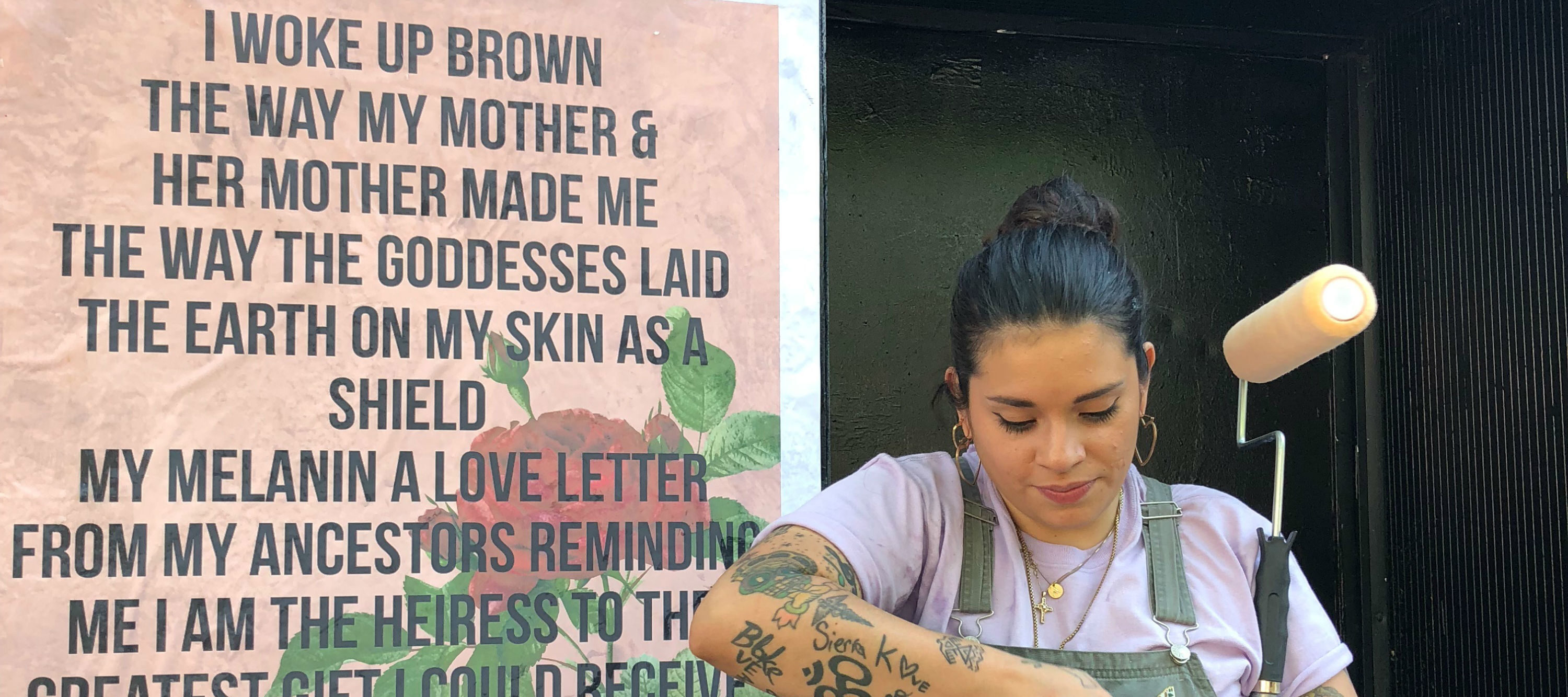Salvadoran-born artist Johanna Toruño, founder of the Unapologetic Street Series, utilizes the streets as a public platform and gallery. Her bold imagery and statements, often adorned in lush florals, celebrate and make visible Queer, working class, and immigrant Black and Brown communities.
1. Can you tell us about your work?
The Unapologetic Street Series is a multi-medium public art series that centers Queer people of color in public spaces. I create large-scale political posters adorned with flowers. The body of work is meant to disrupt public content by centering folks of color and by taking up space as a gallery.
2. You integrate poetry in your works. What value does it add to visual art?
I utilize words as a way to connect with people. Having something to say and knowing there are people who feel the same way you feel, but might not say it out loud in the context of public space, poetry helps with that expression.
3. Have you encountered challenges as a Queer immigrant artist?
I’ve encountered limitations and barriers as a Queer Salvadoran migrant, but I am proud of the way my work has been very “do it yourself” and community taught.

4. You recently moved to Washington, D.C. What do you look forward to achieving in this city?
I was excited to move to D.C. to concentrate on another level of political art and what it looks like to install more performance-based street art. I am also looking forward to connecting with more Central American artists.
5. Do you have a favorite piece of work you’ve created?
It’s impossible to choose since this work has changed my life, but two installations stand out: the synthetic floral frame installation of Alexandria Ocasio Cortez and the installation of ancestor Sylvia Rivera.
6. What woman artist inspires you at the moment?
I’ve always been inspired by women artists, some that immediately come to mind are Elizabeth Blancas, Mona Chalabi, Tatyana Fazlalizadeh, and Barbara Kruger. I also love the work of Bia Blooms, a Black-owned floral boutique in Los Angeles. I’m also inspired by my non-artist homegirls, who organize communities, and women street vendors and farm workers.
